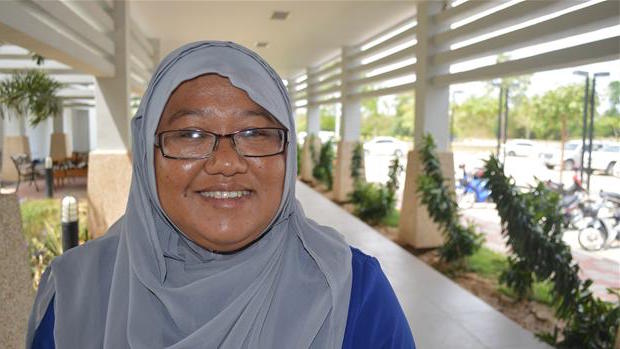Deep southern Thailand is a conflict area where armed groups of ethnic Malay Muslims have waged an extended struggle for freedom from Thai rule. The area covers the present-day southernmost Thai provinces of Pattani (Patani), Yala, Narathiwat and four districts in Songkhla province.
Over 6,000 people died and more than 10,000 were injured between 2004 and 2014 in an ethnic separatist insurgency. The insurgency has been taken over by hard-line jihadis who target both the Thai Buddhist minority and local moderate Muslims or Muslims who support the government.
Duayjai Group, based in Songkhla province, was established on 23 January 2010 by my sister Pattama and me, Anchana Heemmina, after Pattama’s husband was imprisoned (later acquitted) on national security-related charges. After that, Pattama and I began to meet other families of detainees in the region. Duayjai Group found that people in villages were suffering from loopholes in the judicial process such as language differences (people in the deep south use Malay while the official language is Thai), lack of knowledge of the justice system and judicial process, etc. Many of the detainees were later proven to be innocent and acquitted.
The overall aim of Duayjai Group is to stop the vicious, violent cycle that is caused by the government’s injustice. My team and I work with detainees and their families to increase their access to justice despite differences in nationality, religion, language and knowledge. We work against torture under the Martial Law which allows detention for more than 30 days without charge. We also work on protecting youths from being exploited by both the military and the insurgency and ensure that they are protected by the law. This is because under the Martial Law, Malay Muslim youths can be detained in a regular prison despite the international code that protects them. Some detained youths we have worked with have had their rights violated during detention. For example, some have been imprisoned alone with the lights constantly on and some have been imprisoned in a stable.
The officials first threatened us (that we would be sued for defamation) when we released a statement on torture in 2011. The second time we were threatened was when we represented a number of villagers protesting against military corruption. On this occasion some families were visited and threatened by officials at their homes. The third time, the military forced us to retract our Facebook post demanding compensation from the authorities and threatened to sue us. The fourth time we were threatened after we complained about the military’s excessive use of force. In response they sent three cars of armed soldiers to intimidate us four or five times.
The military has repeatedly contacted us through other NGOs to pressure us to stop reporting human rights issues in conferences. We have been asked to stop reporting on sensitive issues such as the murder of monks and women which cannot be easily defined as ordinary crimes or insurgency-related crimes.
Most recently, on 5 November 2015, after releasing an article on military threats, a smear campaign was launched against us.
Regardless of how many times our work has been threatened, it will never discourage me from working to protecting others who face similar threats and to promote peace.

The fourth time we were threatened after we complained about the military’s excessive use of force. In response they sent three cars of armed soldiers to intimidate us four or five times.
